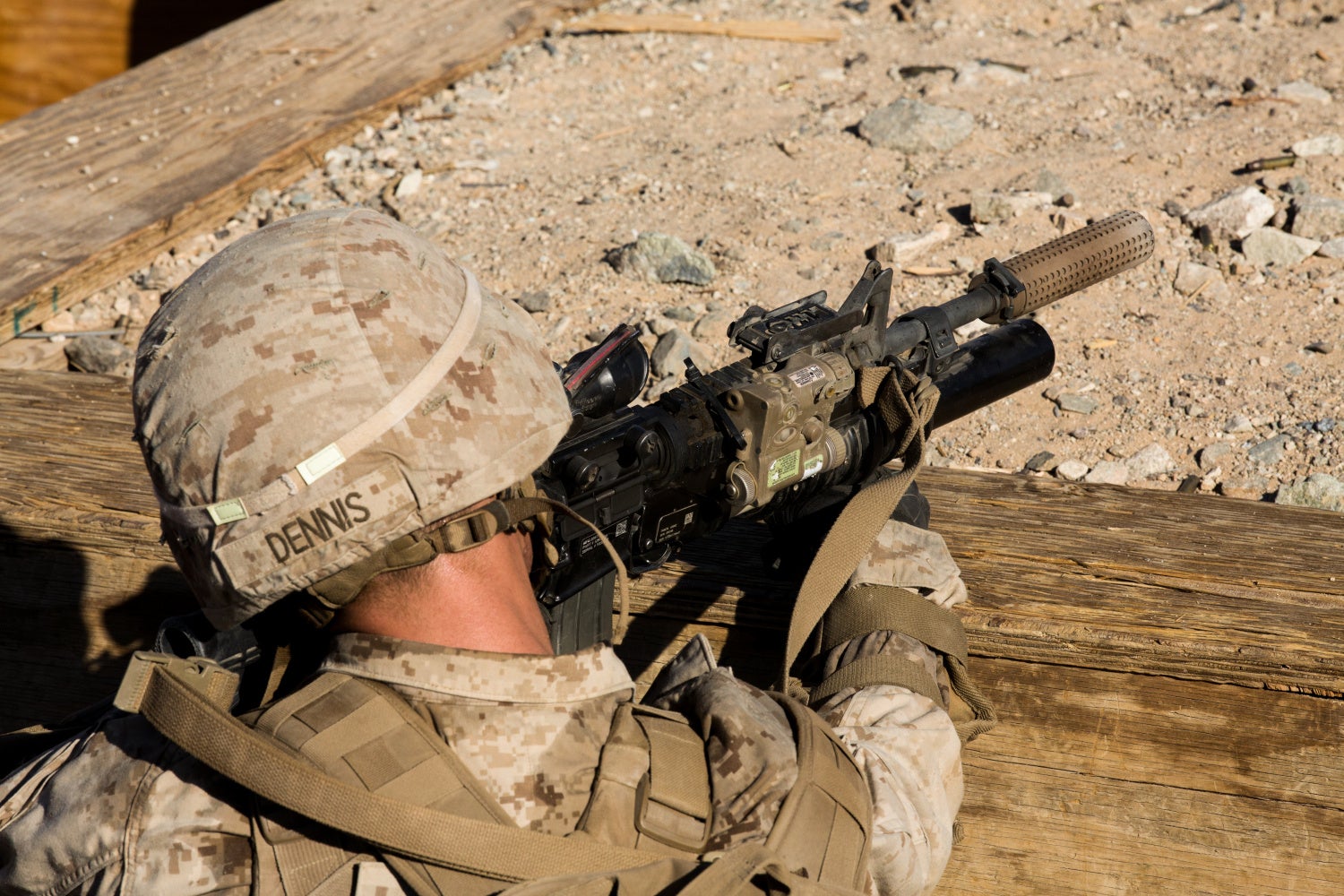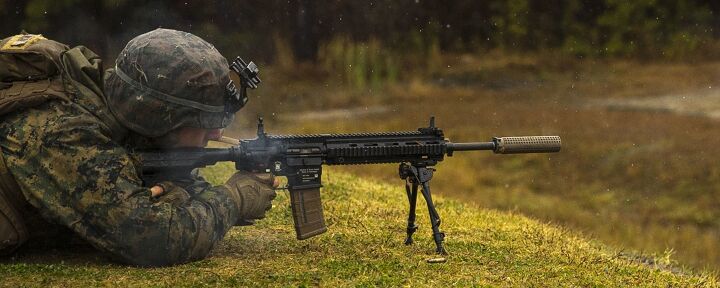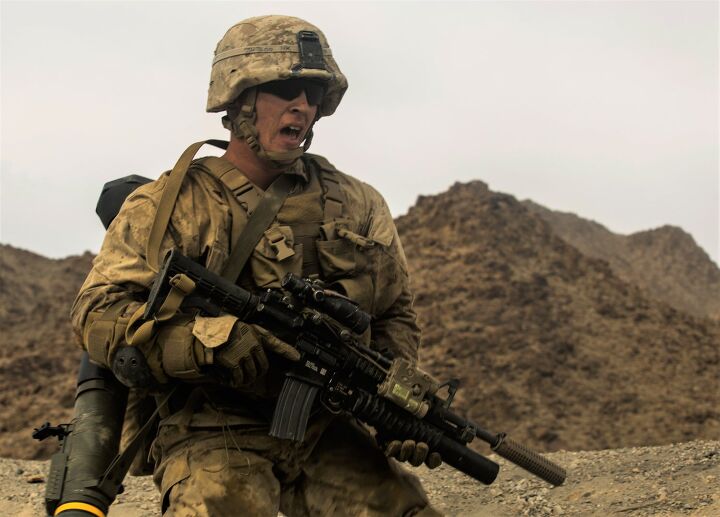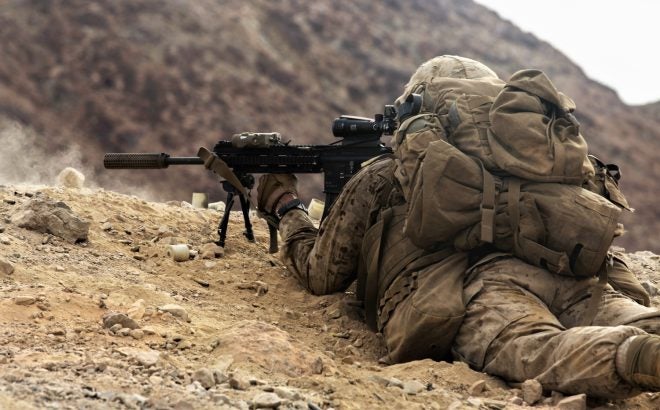TFB has long followed the progress of the US Marine Corps effort to field suppressors across the board. At the end of December 2020, the Corps finally announced that they had begun the process of fielding thousands of rifle caliber suppressors to Marines for use with the M27, M38, M4 and M4A1 rifles and carbines.
Major Mike Brisker, weapons product manager in Marine Corps Systems Command (MCSC)’s Program Manager for Infantry Weapons, said “We’ve never fielded suppressors at this scale, this fielding is a big moment for the Marine Corps.”
The USMC’s interest in suppressing every Marine’s weapon began in 2015-16, with a series of experimentations at a 2016 “Sea Dragon” event and ramped up in 2017-18 with extensive testing including entire battalions being issued with suppressors. In 2018 the USMC announced that it would begin issuing the M27 as its combat rifle in place of the M4/M4A1 carbine.

A U.S. Marine with Bravo Company, 1st Battalion, 2nd Marine Regiment utilizes a suppressor while providing security on a company attack range in Twentynine Palms, Calif., Oct. 21, 2016. (U.S. Marine Corps photo by Sarah N. Petrock, 2d MARDIV Combat Camera)
An initial request for information was launched in August 2017 seeking an off-the-shelf suppressor, a number were tested and in July 2020 it was announced that Knight’s Armament Company’s NT4 had been selected. KAC were awarded a $25,652,000 contract in October 2020 for an undisclosed number of suppressors. We do know, however, the USMC plans to procure 25,853, 5.56mm Small Arms Suppressors for issue to the Corps’ close combat forces.
The USMC described the new ‘small arms suppressors’ as being “designed to reduce a weapon’s noise, flash and recoil. They are also time-efficient, as attachment and detachment only takes a few seconds. The mass fielding of the suppressors, and their myriad benefits, represents a monumental moment for the Marine Corps.”

U.S. Marines with 3rd Battalion 8th Marine Regiment fire the M27 Infantry Automatic Rifle during a live-fire weapons exercise at range F-18 on Camp Lejeune, N.C., Dec. 8, 2017 USMC photo by (Lance Cpl. Michaela R. Gregory/USMC)
“The positive feedback from that experiment [in 2016] was the primary driving force behind procuring suppressors,” said Brisker. “We’ve had a few limited user experiments with various units since that time, and all of those events generated positive reviews of the capability.”
In 2020 Program Manager for Infantry Weapons procured about 6,700 suppressors through the Defense Logistics Agency’s Tailored Logistic Program and has acquired a further 7,000 the first delivery order upon the contract award to KAC.
CWO4 David Tomlinson, MCSC’s infantry weapons officer, emphasized the importance of suppressors in exchanging information during battle, explaining that “the most important thing the suppressor does is allow for better inter-squad, inter-platoon communication. It allows the operators to communicate laterally up and down the line during a fire fight.”

A U.S. Marine with Bravo Company, 1st Battalion, 2nd Marine Regiment, with suppressed M4 carbine, 2016. (U.S. Marine Corps photo by Lance Cpl. Sarah N. Petrock, 2d MARDIV Combat Camera)
Tomlinson notes that “As I travel and brief units, this capability has generated the most interest—from lance corporals to colonels,. There has been an overwhelming excitement to receiving the suppressors, which we anticipate will serve as an effective capability for the warfighter.”
The Corps’ goal is to field approximately 30,000 suppressors by fiscal year 2023. The US Army, while not yet fielding suppressors to its close combat forces, has also embraced the suppressor and required that its Next Generation Squad Weapons will be equipped with suppressors as standard.
Source: Marine Corps Begins Widespread Fielding of Suppressors, USMC
 Your Privacy Choices
Your Privacy Choices
